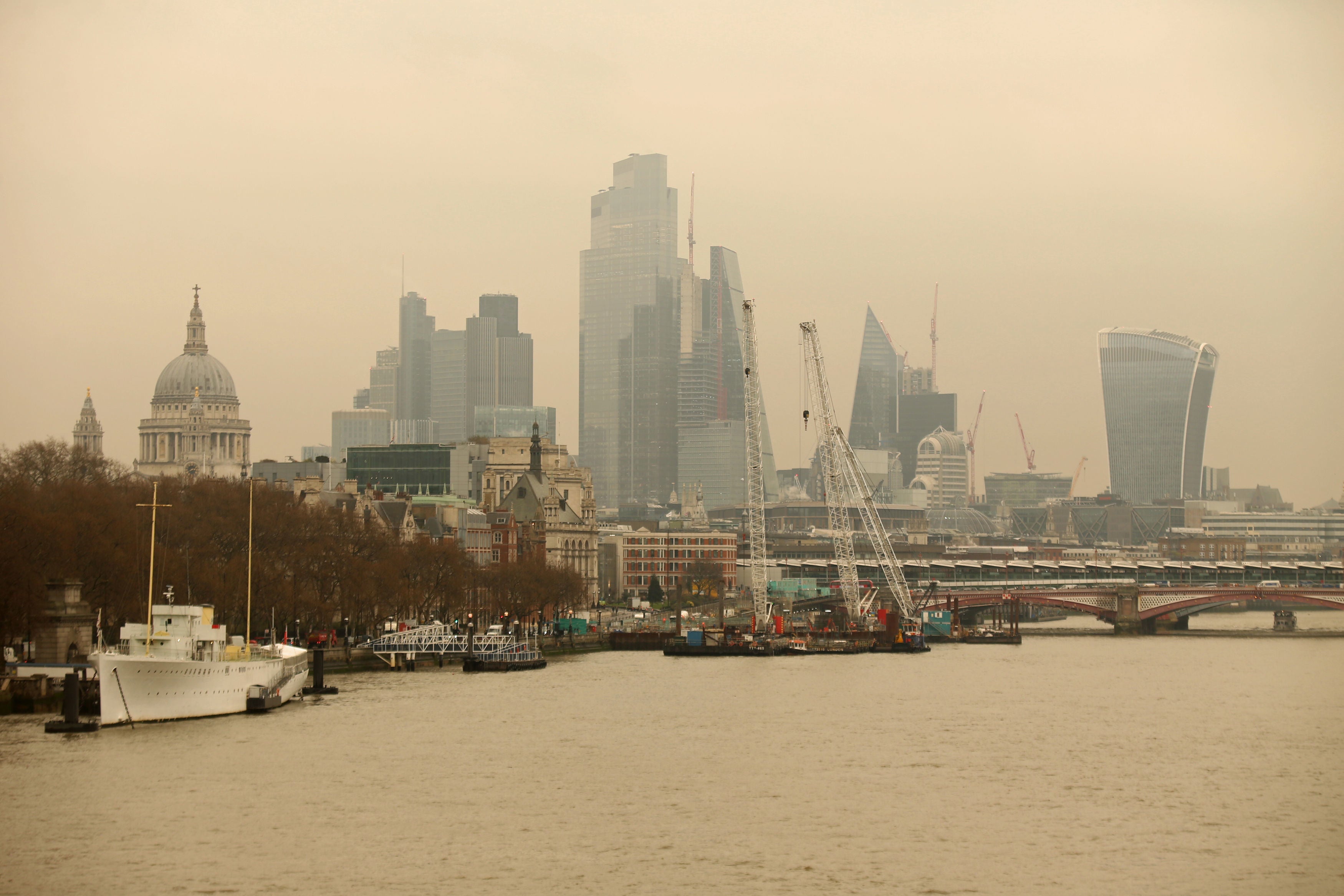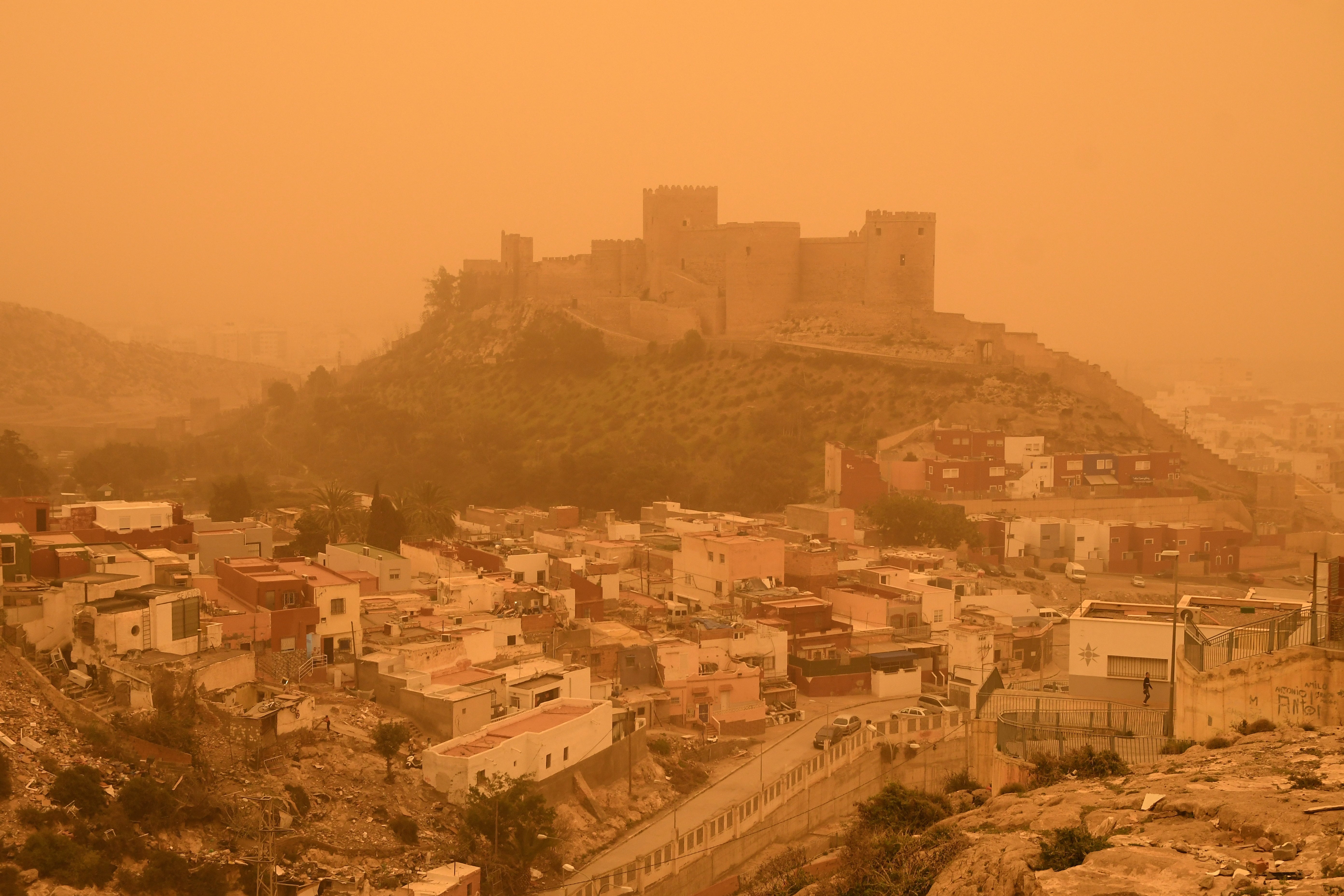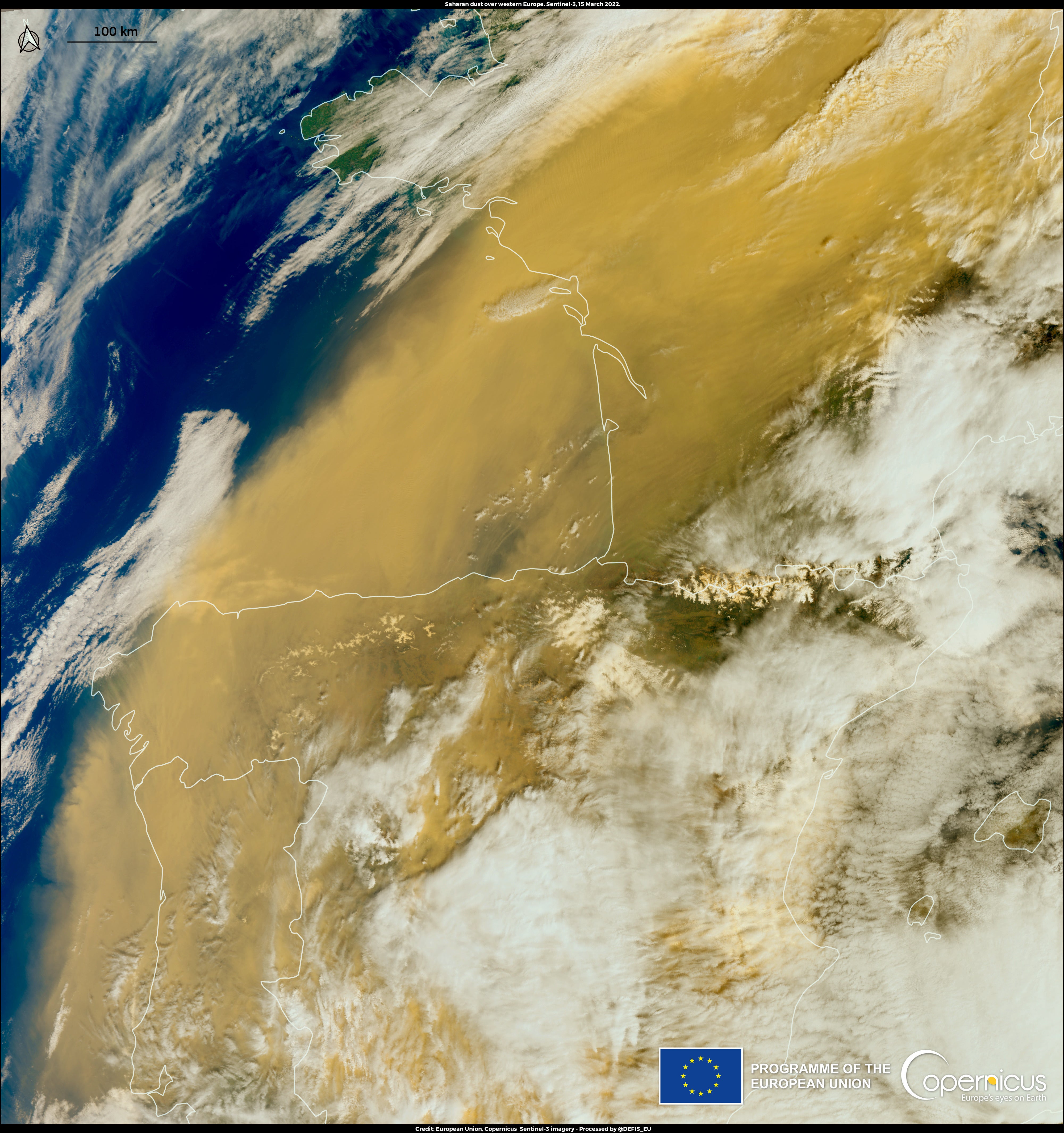Saharan red dust arrives in UK after turning Spanish skies orange with ‘blood rain’
It’s left cars covered in a rust-coloured coating

Your support helps us to tell the story
From reproductive rights to climate change to Big Tech, The Independent is on the ground when the story is developing. Whether it's investigating the financials of Elon Musk's pro-Trump PAC or producing our latest documentary, 'The A Word', which shines a light on the American women fighting for reproductive rights, we know how important it is to parse out the facts from the messaging.
At such a critical moment in US history, we need reporters on the ground. Your donation allows us to keep sending journalists to speak to both sides of the story.
The Independent is trusted by Americans across the entire political spectrum. And unlike many other quality news outlets, we choose not to lock Americans out of our reporting and analysis with paywalls. We believe quality journalism should be available to everyone, paid for by those who can afford it.
Your support makes all the difference.A huge dust storm swirling over Europe from the Sahara desert hit parts of Britain on Wednesday, leaving cars and buildings covered in fine red dust.
The conditions made it hard to breathe in large parts of Spain for a second straight day and gave cleaning crews extra work as far away as Paris and Belgrade.
The dust, suspended 2km above ground level, has been falling to earth during showers this afternoon and has left cars with a rust-coloured coating.
There were eerie skies from a grimy gray in Madrid to orange-hues in the Swiss Alps.
The European Union's Copernicus Atmosphere Monitoring Service said it was tracking the large mass of dust that has "degraded air quality across large parts of Spain, Portugal and France."
Although harmful to human health, the dust clouds bring nutrient-laden minerals from the Sahara, the planet’s largest and hottest desert, to ocean life and vegetation.
Sand and dust storms occur annually when powerful, hot winds, sweep across loose soils on arid land.
In England, social media users shared pictures of their powdered vehicles.
Experts, including Spain's national weather service, described the event as "extraordinary" for the amount of dust in the air but noted that it had not broken any records.
"This is an intense event, but this type of event typically occurs once or twice a year, normally in February or March, when a low-pressure system over Algeria and Tunisia gathers up dust and carries it north to Europe.
“Dust can reach the UK or even Iceland, as it did last year," Carlos Perez Garcia, a researcher studying atmospheric dust at the Barcelona Supercomputing Center, told The Associated Press.
Anyone was allergies and respiratory problems is particularly vulnerable to spikes in small-particle air pollution – but forecasters say it is “unlikely” to have a serious impact in the UK.

Earlier, the Met Office’s Richard Miles said: “Storm Celia over Spain is indeed pulling a dust cloud up from the Sahara, which could potentially reach as far as the south of the UK.
“However, we don’t expect significant impacts – the most likely would be on the cloudscapes at sunset, but as conditions are likely to be generally overcast and wet for much of the day this is unlikely to amount to much. There are no air quality warnings.
“People in the south might find a bit of dust left on their cars as the rain washes it out of the skies.”
The term ‘blood rain’ is often used loosely to describe rain mixed with high concentrations of red dust.

The Met Office says “proper” blood rain is relatively rare – especially in the UK.
It said: “Each year on several occasions the UK will see rain falling with some amount of dust mixed into it. This usually comes from the Sahara before mixing in clouds and falling out.
“However, the dust we see is usually yellow or brown and mixed in very low concentrations - so the rain would look just the same as usual. The only difference would be that you might find a thin film of dust on your car or windows after the water has evaporated.”
Join our commenting forum
Join thought-provoking conversations, follow other Independent readers and see their replies
Comments